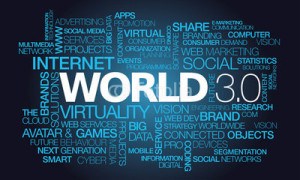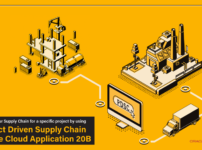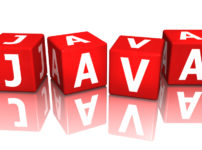Explanations of latest Technological buzzwords
The intention of writing this post is of twofold. One, to make sure that I don’t forget what I have read on the internet/social media/Books/PDF. Second, make that information available to the professionals linked through our network.
By reading this post, I expect couple of things to happen. First, someone who is looking for information on what those terms and technology is all about and to get the details in layman terminology. Second, those who are experienced in that specific domain would be curating the content and make it accurate.
The content could be useful for someone who is not aware of the latest technology/terminology. It is about BIG DATA, Analytics, IoT’s, Data Science and all definitions related to these technologies. The intention is to make sure I understand better, we understand better, together.
- Data
Collection of facts, statistics or any other piece of an object that makes sense if we arrange in a proper way for further processing. It could be structured (DB Tables), unstructured in the form of text, voice, video, images, data collected from sensors etc.
2.Information
Collection of Data’s which will make sense in appropriate context.
3.Data Storage
The place where data is stored in a structured/Unstructured manner for processing. Examples are databases such as Oracle, SQLDB, MS access, MongoDB, DB2 etc.
4.Data Curation
The technique of planning how the data should be arranged for future analysis
5.Data Warehousing
These are the central repositories of integrated data that comes from different sources such as from OLTP systems (ERP system, CRM system etc.) or OLAP system (EPM system, real time data feed systems etc.). Data Warehousing, is used mainly for business intelligence and reporting.
6.Data Mart/Data Lake
Data marts are smaller slices and a subset of a large data warehouse. This is how users get the data out of a warehouse
Data lakes are a storage repository that holds a vast amount of raw data in its native format until it is needed for further processing
7.Analytics
If you dig the given dataset and find some meaningful insight, then we are told that, we do analytics. It could be anything ranging from finding new market segments, targeting the customers for a promotion and so forth.
8.Data Science
This is a field of study, which uses statistics (Data Modelling), basic and advanced mathematics, information technology tools and certain other parameters based on the verticals we work in, to arrive at a conclusion on a data.
9.Data Scientist
A person who practices/works/researches/perform the data science field of study
10.Big Data
Large volumes of data, both structured and unstructured, coming in a high velocity with a variety of data’s such as text, video, audio, images and so on for storing, processing, retrieving, analysing, visualizing and modelling is said to be big data
11.Domain Analytics
If you perform analytics is a specific domain, then it is domain analytics. There are vertical and horizontal domains. Examples for horizontal domains are marketing analytics, supply chain analytics, financial analytics etc. Examples for vertical domains are agriculture, BFSI, energy, retails, consumer, healthcare, aviation, defence etc.
12.IoT
Latest buzz word, internet of things (IoT) is all about the devices connected to internet such as smart phones, TV’s, computers, smart watches, industrial cameras, sensors etc.
13.Sensors
Sensors are hardware components that can provide you with information about your device location, surroundings, pulse rate, images and videos to name a few
14.Smart Devices
An electronic device connected to other devices or networks through Bluetooth, NFC, Wi-Fi, 3G, etc., that can operate to some extent interactively and autonomously. Examples are Apple watches, Samsung gear, Beurer activity monitor etc.
15.Distributed Computing
The process/program which makes a distributed system work is called as distributed computing. This is a piece of software that helps different computers connected (distributed) in a network to exchange information simultaneously. This software, will improve the efficiency of processing of a task on multiple computers in parallel
16.Hadoop
Hadoop is an example for distributed computing and it is a platform for big data processing. This is an open-source framework that allows to store and process big data in a distributed environment across clusters of computers using simple programming models.
17.Cloud Computing
The practice of using a network of remote servers hosted on the Internet to store, manage, and process data, rather than a local server or a personal computer.
18.Business Intelligence
The process of converting raw data into meaningful business insights to make a better decision
19.Machine Learning
The process or a field of study where, the computer algorithm’s study and mimic human behaviour and improve over the period of time
20.Cognitive Computing
Cognitive computing is the simulation of human thought processes in a computerized model. Cognitive computing involves self-learning systems that use data mining, pattern recognition and natural language processing to mimic the way the human brain works
21.Virtual Reality
VR is an environment created by virtual reality software to mimic the real world on a computer using human sight and sound. You can see these in a museum now-a-days to explain the feature of a monument
4i is happy to be a part of this technological revolution and partner with our customers across the world on implementing & managing enterprise resource planning, building large data warehouses to mine the data for business intelligence, provide data curation services, perform advanced analytics and implement cloud based services, provide management consulting from a strategy point of view, building scorecard applications, develop and deploy enterprise standard mobile application and analytical solution and implement enterprise wide performance management systems
Posted on behalf of Mr. Maheshkumar M, Project Manager (Currently Managing Oracle Score Card and Strategy Management – OSSM implementation project for a large construction co. for 4i)











Informative and interesting blog. we looking forward more publishes.
Kudos to the author.
Ty,
Varun Alavanthar
Thank you Varun
You made some decent points there. I looked on the internet for the issue and found most individuals will go along with with your website.
I was very pleased to find this web-site.I wanted to thanks for your time for this wonderful read!! I definitely enjoying every little bit of it and I have you bookmarked to check out new stuff you blog post.
Looking forward to reading more. Great post.Really thank you! Great.
I?d have to check with you here. Which is not something I usually do! I enjoy reading a post that will make people think. Also, thanks for allowing me to comment!
It?s hard to find knowledgeable people on this topic, but you sound like you know what you?re talking about! Thanks
I?d have to check with you here. Which is not something I usually do! I enjoy reading a post that will make people think. Also, thanks for allowing me to comment!
It?s hard to find knowledgeable people on this topic, but you sound like you know what you?re talking about! Thanks